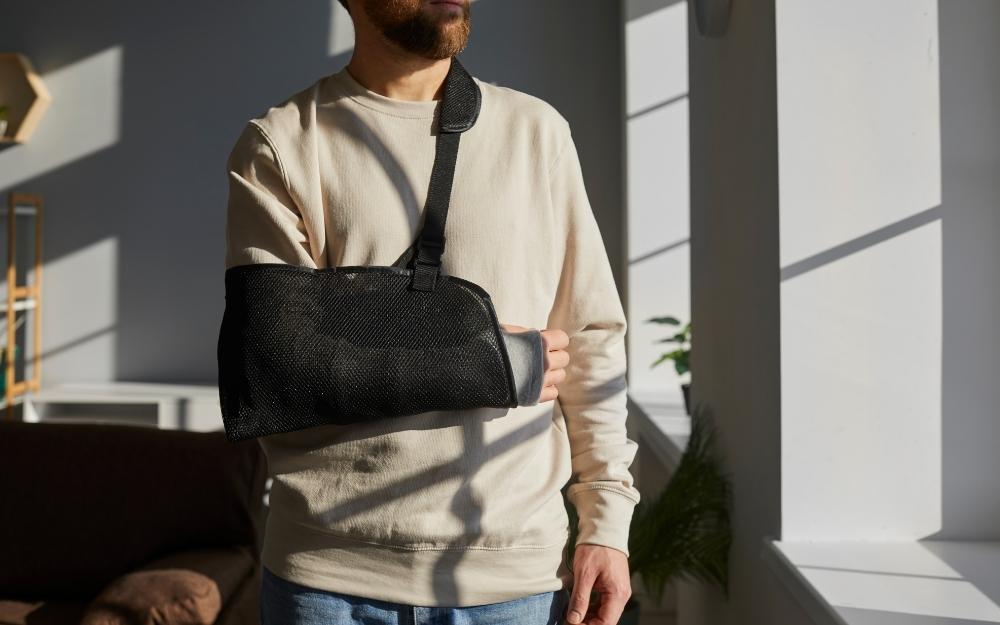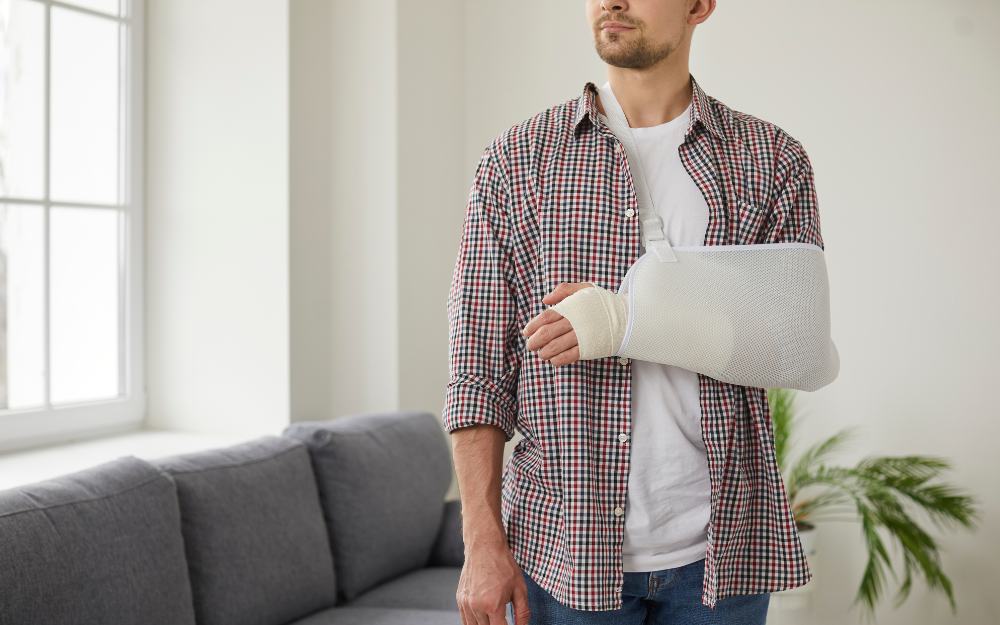In Queensland, workers compensation is a crucial protection system that provides financial support and medical assistance to workers who suffer injuries or illnesses in the course of their employment. However, one question that arises is whether workers are covered by this compensation if they sustain injuries while working from the comfort of their own homes. Obviously, there has been a significant increase in the numbers of employees working from since the advent of COVId-19. This article aims to explore the intricacies of workers compensation in Queensland and shed light on the extent of coverage for injuries sustained at home.
When Will Workers Compensation Cover Injuries When Working at Home?
Workers compensation coverage for injuries sustained at home depends on several factors. To determine eligibility, one must assess the nature of the injury and the circumstances under which it occurred. Generally, injuries that arise out of employment activities and occur during work hours are covered. This means that if you are employed and conducting work-related activities from home, the chances are high that you will be covered by workers compensation in the event of an injury.
However, it is important to note that injuries that occur during breaks or unrelated activities, such as personal tasks or hobbies, may not be covered by workers compensation. For instance, if you take a break to cook lunch and accidentally cut yourself, you may not be eligible for compensation as this would be considered a personal and unrelated activity.
Working from home has become increasingly common in recent years, especially with the rise of remote work and the advancements in technology that allow people to perform their job duties from the comfort of their own homes. This shift in the work landscape has raised questions about workers compensation coverage for injuries that occur while working remotely.
When it comes to determining whether an injury sustained while working at home is covered by workers compensation, one of the key factors is whether the injury arose out of employment activities. This means that the injury must be directly related to the work being performed. For example, if you are a graphic designer and you sustained carpal tunnel syndrome due to the repetitious nature of using the computer mouse, that would likely be considered an injury arising out of employment activities and would be covered by workers compensation.
Another important factor to consider is whether the injury occurred during work hours. Just like injuries that occur in a traditional office setting, injuries that happen while working from home are generally covered if they occur during the designated work hours. However, it is important to note that defining work hours can sometimes be more challenging when working remotely, as there may be more flexibility in terms of when work is performed.
It is also worth mentioning that the location where the injury occurred can play a role in determining workers compensation coverage. In some cases, injuries that happen in areas of the home that are designated as the employee’s workspace may be more likely to be covered. However, this can vary depending on the specific circumstances and the laws of the jurisdiction in which the employee is located.
While injuries that occur during breaks or unrelated activities may not be covered by workers compensation, it is important for employers and employees to have clear guidelines and policies in place to ensure that everyone understands what is considered work-related and what is not. This can help prevent confusion and potential disputes when it comes to determining eligibility for workers compensation coverage.
Overall, workers compensation coverage for injuries sustained while working at home is determined by a variety of factors, including the nature of the injury, the circumstances under which it occurred, and whether it arose out of employment activities. It is important for both employers and employees to be aware of these factors and to have clear communication and guidelines in place to ensure that everyone understands their rights and responsibilities when it comes to workers compensation coverage.
What is an Example of Someone Injured at Home Who Received Workers Compensation in Queensland?
In 2011 the Administrative Appeals Tribunal decided in favour of a worker who was injured while working in her own home. In the matter of Hargreaves and Telstra Corporation Limited [2011] AATA 417 (17 June 2011) the worker was injured when she fell down the stairs at her home while she was working for Telstra. At the time of each fall she was logged into Telstra’s computer system and had gotten up from her workstation for a short break, like taking a tea break in an office environment. In this case, the worker was entitled to make a claim for workers’ compensation for the injuries that she sustained at work.
What to do if You’re Injured at Home and Covered by Workers Compensation
If you sustain an injury while working at home and you believe you are covered by workers compensation, there are important steps to follow. Firstly, report the injury to your employer as soon as possible. This ensures that your employer is aware of the situation and can initiate the necessary procedures for your claim.
When reporting the injury, be sure to provide detailed information about how the accident occurred and the specific injuries you have sustained. This information will be crucial in determining the validity of your claim and the amount of compensation you may be entitled to. It is important to be as thorough and accurate as possible when describing the incident, as any inconsistencies or gaps in your account may raise doubts about the legitimacy of your claim.
Once you have reported the injury, your employer will likely require you to fill out a workers compensation claim form. This form will ask for details about the accident, your injuries, and any medical treatment you have received. It is important to complete this form accurately and honestly, as any false or misleading information could jeopardize your claim.
Secondly, seek immediate medical attention for your injury. It is essential to document the extent and nature of your injury to support your claim. When visiting a healthcare professional, be sure to provide a detailed account of how the injury occurred and any symptoms you are experiencing. This will help the medical provider accurately diagnose and treat your injury, as well as provide necessary documentation for your workers compensation claim.
Depending on the severity of your injury, your healthcare provider may recommend additional diagnostic tests, such as X-rays or MRIs, to further evaluate the extent of the damage. These tests can provide valuable evidence to support your claim and ensure that you receive appropriate compensation for your injuries.
Thirdly, consult with a workers compensation lawyer to guide you through the claim process. They will provide expert advice and ensure that you receive the compensation you are entitled to. A workers compensation lawyer will review the details of your case, assess the strength of your claim, and help you navigate the complex legal procedures involved in obtaining compensation.
During your consultation with a workers compensation lawyer, be prepared to provide all relevant documentation, including medical records, accident reports, and any correspondence with your employer or their insurance company. This will help the lawyer evaluate the strength of your claim and determine the best course of action to maximize your chances of a successful outcome.
In addition to assisting with the claim process, a workers compensation lawyer can also help you understand your rights as an injured worker. They can advise you on any potential legal issues that may arise, such as disputes over the extent of your injuries or disagreements with your employer’s insurance company.
It is important to remember that the workers compensation claim process can be complex and time-consuming. Having an experienced lawyer by your side can greatly increase your chances of a successful outcome and ensure that you receive the compensation you deserve for your injuries.
What Benefits are Provided by Workers Compensation in Queensland?
Workers compensation in Queensland offers various benefits to support injured workers. These benefits include:
* Medical and rehabilitation expenses: Workers compensation covers the costs of medical treatments, therapies, and rehabilitation services necessary for the injured worker’s recovery.
* Income support: If the injured worker is unable to work temporarily or permanently due to the injury, workers compensation provides income support to compensate for the lost wages.
* Return to work assistance: Workers compensation includes programs and services designed to assist injured workers with their return to work, such as vocational training and job placement support.
* Lump-sum settlements: In some cases, workers may be eligible for a lump-sum settlement, which provides a one-time payment to compensate for permanent impairment or loss of function resulting from the injury.
These benefits aim to alleviate the financial and emotional burdens faced by injured workers, enabling them to focus on their recovery and reintegration into the workforce.
How GC Law Can Help Injured Workers Claim Compensation for Injuries Sustained at Home
When it comes to navigating the complexities of workers compensation claims for injuries sustained at home, seeking expert assistance is crucial. GC Law, a leading law firm specializing in workers compensation, has a team of experienced personal injury lawyers who can provide the necessary guidance and support to injured workers.
If you have been injured at work or during the course of your employment, you should contact GC Law for FREE advice about your workers’ compensation entitlements.
This information should in no way be taken as legal advice and is designed as general information regarding casual worker’s injury compensation in Queensland. GC Law recommends that you speak to a compensation lawyers regarding your situation.







![GLJ V The Trustee of the Roman Catholic Church for the Diocese of Lismore [2023] HCA 32](https://www.gclaw.com.au/wp-content/uploads/2023/11/GLJ-V-The-Trustee-of-the-Roman-Catholic-Church-for-the-Diocese-of-Lismore-2023-HCA-32.png)











